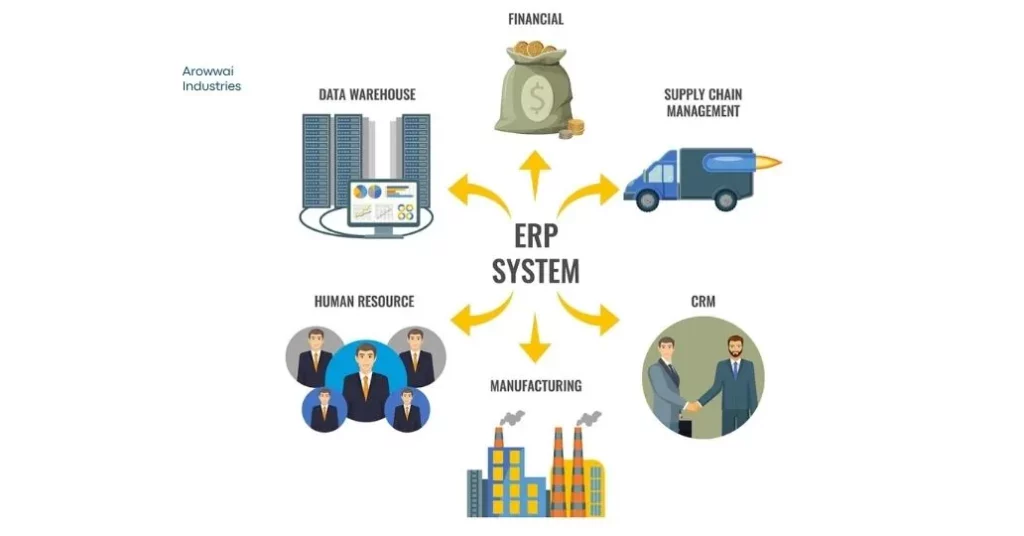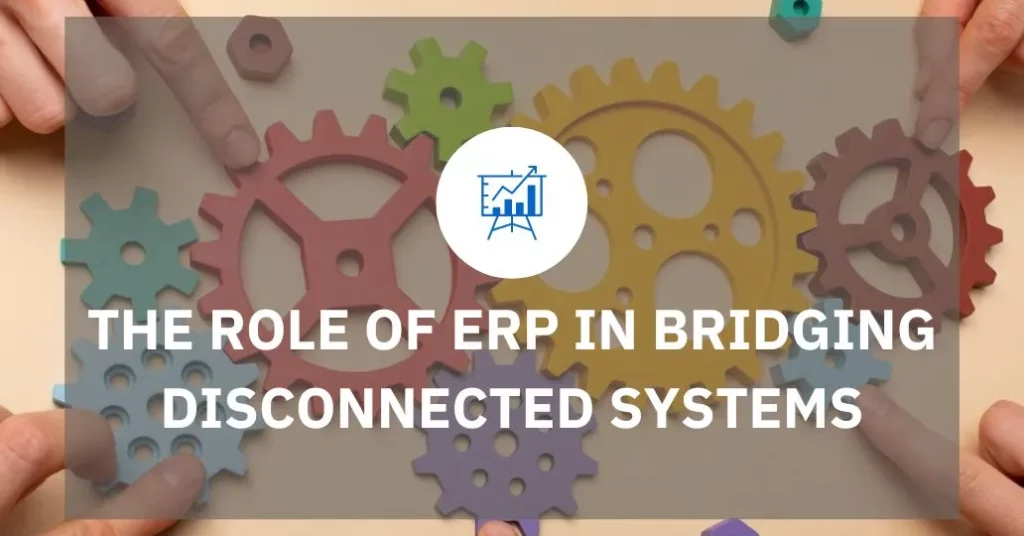Businesses rely on efficient operations and seamless communication in the modern era. However, many organizations find themselves grappling with disconnected systems that hinder productivity. This article focuses on ERP systems and how they serve as the bridge connecting these disconnected systems. We’ll explore the significance of ERP in streamlining processes, enhancing data visibility, and driving businesses toward success.
Disconnected Systems:
Disconnected systems, in simple terms, refer to the various software applications or processes within an organization that do not effectively communicate or share data. These can range from different software programs to manual processes that create data silos. The result? Inefficiency, redundancy, and an overall lack of collaboration within the organization.
The Chaos of Disconnected Data
Imagine having different departments in your organization, each maintaining its records in isolation. The finance team has its accounting software, the HR department has a separate system for employee records. The sales team uses a different platform for customer information. This disconnected data often leads to errors, delays, and miscommunication.
ERP Role in Bridging Disconnected Systems
ERP is like the conductor of an orchestra, harmonizing the various instruments to create a beautiful symphony. It’s an integrated suite of applications that helps businesses manage and automate many back-office functions. ERP solutions encompass finance, HR, supply chain, manufacturing, and more, all under one roof.
ERP Benefits in Business
ERP offers a multitude of benefits, including improved efficiency, data integration, streamlined processes, and better decision-making. These advantages translate into cost savings and increased competitiveness for businesses. With ERP, your organization can operate more smoothly, making it a valuable asset in today’s competitive market.

ERP and Streamlined Processes
One of the primary benefits of ERP is the streamlining of business processes. It simplifies complex workflows, eliminates redundant tasks, and automates routine operations. This, in turn, boosts productivity and allows employees to focus on value-adding activities.
Data Integration: ERP’s Superpower
ERP’s superpower is data integration. It breaks down the barriers between different departments by centralizing data. This means that information flows across the organization. The result is better collaboration, faster decision-making, and a more complete view of your business.
ERP for Financial Management
Managing finances can be a complex task, especially if your financial data is scattered across different systems. ERP simplifies financial management by consolidating all financial data in one place. It facilitates budgeting, forecasting, and financial reporting. It provides a comprehensive view of your organization’s financial health.
HR and ERP: A Perfect Pairing
Human Resources is the heart of any organization, and ERP is the backbone that supports HR functions. It streamlines HR processes such as recruitment, payroll, benefits administration, and employee performance management. With ERP, HR professionals can manage the workforce, ensuring employee satisfaction and compliance.
ERP and the Supply Chain
In the competitive landscape of today’s business world, a well-managed supply chain is essential. ERP systems enhance supply chain management by providing real-time visibility into inventory, demand forecasting, and supplier coordination. It ensures that the right products are in the right place at the right time, reducing costs and satisfying customers.
ERP and Customer Satisfaction
Happy customers are the lifeblood of any business. ERP systems help improve customer satisfaction by providing valuable insights into customer preferences and behaviors. With this information, businesses can tailor their products and services to meet customer needs.
The Cost of Disconnected Systems
The hidden costs of disconnected systems can be significant. Organizations may experience higher operational expenses, increased errors, and delays in decision-making. The inefficiencies caused by disconnected systems can erode profitability over time.
Challenges in Implementing ERP
Implementing ERP is not without its challenges. It requires a substantial investment of time and resources, and resistance to change can be a roadblock. However, with proper planning and change management, these challenges can be overcome, and the benefits of ERP can be fully realized.
Conclusion:
In conclusion, ERP plays a vital role in bridging disconnected systems within organizations. By centralizing data and enhancing communication, ERP paves the way for increased efficiency and business success. Embrace ERP, and watch your organization thrive in today’s interconnected world. If you need any services related to ERP customizations, feel free to contact us. We have a team of experts to evaluate your problems and pose an effective ERP solution.




